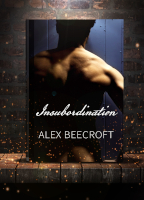Write On – Worldbuilding
As with so many things, the germ of your worldbuilding is already present in the initial big idea. At least for me, the setting turns up as part of the inspiration. The big idea comes as a Hero Role A and Hero role B [do something] in [somewhere exotic]. So, a berserker and a bard [go on pilgrimage] in [Anglo-saxon England], or a naval captain and a lieutenant [are shipwrecked] in [the Pitcairn islands].
This is obviously very convenient in one way, and slightly restrictive in another. If I try to think of an idea in a setting I don’t like, for example, nothing comes. I think this is because for me the setting is an essential on the same level of the main characters. If I can’t like the setting it’s as big a problem for me as it would be if I couldn’t like the characters. I can’t decide on a plot and then later try to decide which setting would complement that plot best. They come as a job lot.
If you can think of a plot and main characters before you think of where these things and people come from, good for you. You can then sit down and ask yourself whether you want your pirates to be modern day pirates or space pirates or historical pirates, Cornish pirates, Barbary coast pirates or Caribbean pirates, or whether your tragic bartender is a bartender in LA, the past, the future, a city ruled by supervillains or serving liquefied brains to zombies.
My advice there would be ‘choose the one you find most exciting’. Also, ‘choose the one in which you can think of lots of interesting things to happen.’ If you choose to set your scholar meets jock romance in a tea shop in the Cotswolds, you need to be the kind of writer who enjoys, and can make enjoyable, small town politics and angst on a low level, one who does not yearn for explosions and battleships (unless you’re going to have your small town invaded by tanks, of course.)
So, having decided what your setting is going to be, what next?
If you’ve decided on a real world setting, now is the time for research. Unless your setting is one with which you are already intimately familiar, you need to read up as much as you can get hold of about it. Bookmark pictures, borrow books from the library and photocopy the most relevant pages, buy books where you can afford it, talk to people who know the setting better than you, make notes and generally steep yourself in the ambiance. This applies as much to a modern city you don’t know as it would to a historical setting of any sort.
Actually, if the modern city is a city in a different country from your own, the research is even more important, because a modern city is full of modern readers who know better than you do. I’ve been reading along with a sporking of 50 Shades of Grey, where the English author has not realised that her American characters wouldn’t wear ‘dressing gowns’ or get house calls from their doctors, because these things seem self evident to her. She didn’t know that she didn’t know these things, so she didn’t know she needed to research them.
It’s best to assume you know nothing at all, and try to work up from there. What do people eat for breakfast? Where do they get their money? What do they call the thing they carry it in? Do doctors make housecalls? Would you offer a workman a cup of tea or would that be considered an invitation to rape?
In a way it’s easier if you’re writing fantasy and you can build all this stuff up from scratch. At least there you start off on the understanding that you know nothing, it’s up to you to make up everything, and yet nobody knows better than you do.
I thoroughly recommend maps and floorplans, whether these are pre-existing maps and floorplans obtained by Googling, or maps and floorplans you have to draw of your own imaginary land.
There are many many questions you need answering about any society before you can realistically write about it. Who’s in charge? (A king, a council of elders, a theocracy, a democracy, an oligarchy, secret ascended masters, an elite military caste?) How do they enforce their will? How happy are the commoners with them? Where does the wealth of the society come from? What is the basis of their economy? (Is it all peasants growing food and warriors sponging off them for protection money, or is it mostly a manufacturing and trading economy?)
What do people wear? What do they believe? What does any of that mean? How do they eat, what do they eat, who cooks it, where do they buy it from? What kinds of things do they value? Are they a literate society, if not, how do they pass down the things they think it’s important to remember? What sorts of things would they die for and why?
What is their relationship to animals (are they herders who live close to their cattle and move with them across the steppes? Are they settled agriculturalists whose cattle stay in fields which belong to the whole village? Are they wild horsemen/T-Rex riders, who ride through the settlements of more civilised people pillaging as they go? Do they use tame wolves to hunt deer or to herd sheep?
What is their relationship to the natural world? Is it an abode of demons, as the Saxons thought, or a waste of good resources waiting to be tamed, as the Georgians did? Is it full of spirits which need to be placated, or is it actively working against our heroes?
What is their society’s relationship with its neighbours and its own underdogs? Who are they at war with? Who do they despise and look down on? Who do they admire and try to emulate. What stories do they tell themselves to make themselves feel better?
Culture isn’t simply material things, it’s the attitudes and beliefs of the people. These are the things that people will live and die for. And certainly some things are universal – such as love and hate, envy and fear – but some things really aren’t – such as the belief that the gods depend on human blood to survive, or that capitalism is the universal panacea.
All of these things are things you will have to either make up or find out. After that you’ll have to find out or make up everything else, from ‘do they write on paper or tie knots in cords?’ to ‘what’s their policy on washing? Every year at Christmas or four times a day before prayers?’
In general, the bigger questions about how the society organises itself ought to be answered before you start writing, but the smaller questions can wait until you need them. You need to know whether you’re operating in a monarchy or an anarchy before you start, but you don’t need to know what they use for toilet paper unless a character is suddenly caught short. So basically, do as much world building before you start as you need to be able to understand and predict the actions of your characters. After that, fill in as you go along.
Next week, enough with the nebulosity, time to crack on with the plot.


What’s the best way to start ‘researching’ on a country you’ve never visited? In my case it’s England. (Ahahaha) And I’m pretty clueless about general lifestyle on a microscopic level, too. What do you reccomend?
Is it modern England or England in some particular historical era? If it’s modern England, you can probably get hold of newspapers and the BBC. Immersing yourself in that – particularly if you can get UK and US reporting on the same incident – should give you some feel for general attitudes. After which, don’t try to research the whole country, just pick your settings and read up on them. Ideally, run your stuff past a couple of British readers to Britpick it – so finding a critique group or UK friends on the internet would be a good move.
And if we’re talking about a certain historical era, about how long does it take to become ‘intimate’ with it? (I’m trying to pick between two projects, you see.)
Hm, it depends what level of intimate we’re talking about. I read up on the Royal Navy in the 18th Century for two years before writing my RN books, but that was out of interest rather than necessity. The same goes for the Saxon background for The Reluctant Berserker (except I’ve spent a good 20 years reading up about the Saxons.) I’m sure you can get a good crash course in something in a shorter time, but I haven’t really tried it myself. Several months at least, I’d have thought.